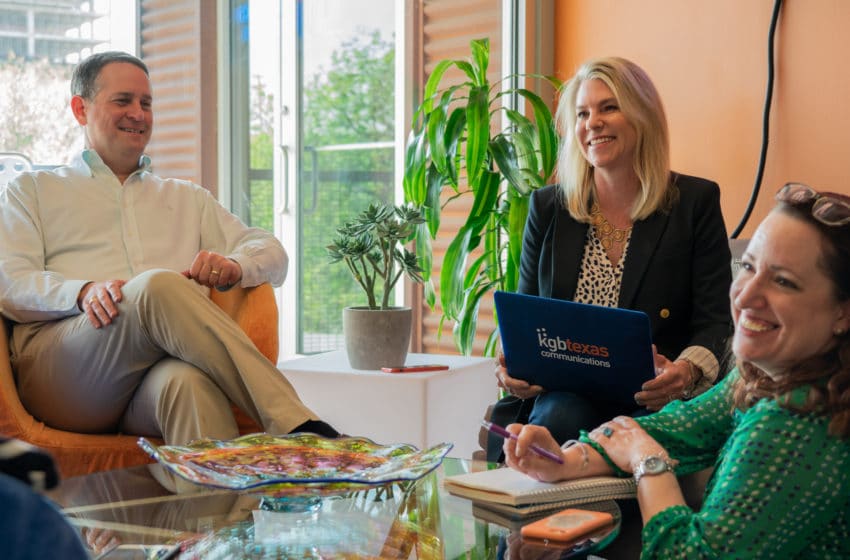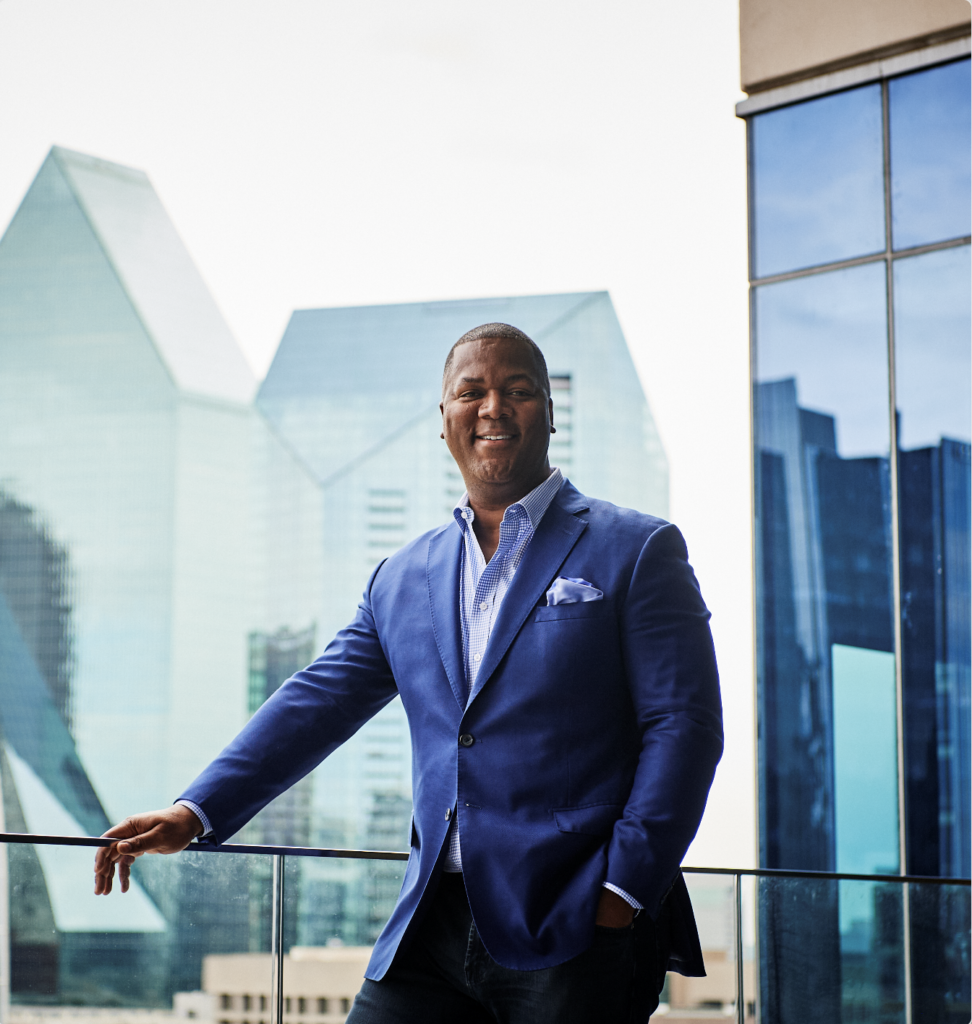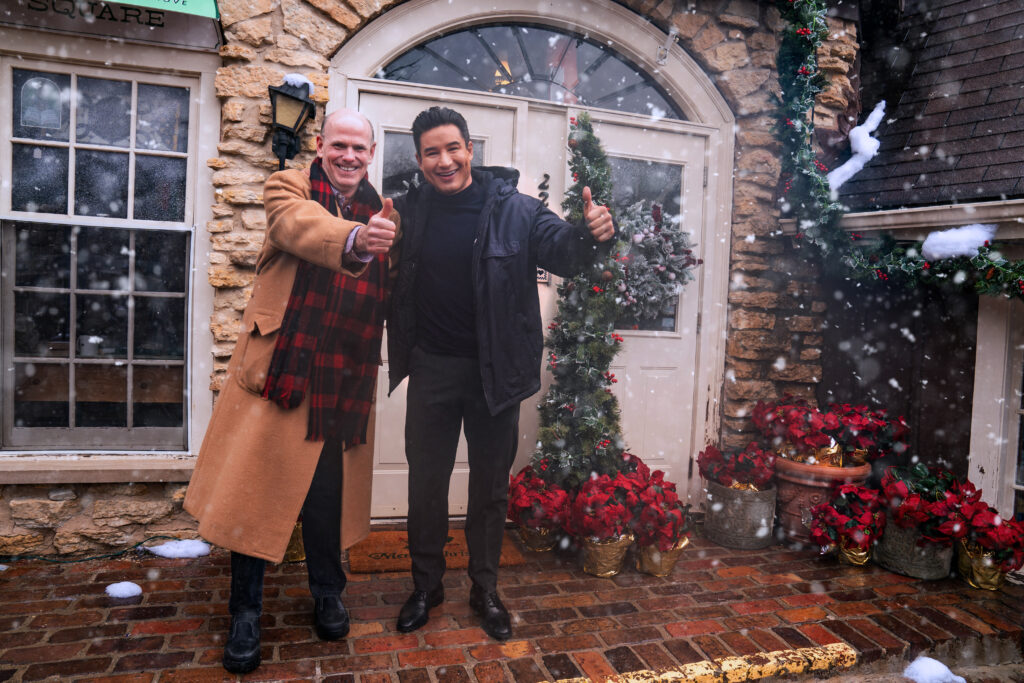KGBTexas Is Choosing the Campaigns That Matter

A Journey of Growth and Impact
As CEO of KGBTexas Communications, Katie Harvey has grown her full-service marketing and communications agency from its humble origins 26 years ago as a boutique public relations firm to one of the largest women-owned communication agencies in Texas, with more 40 employees and offices in San Antonio and Houston. And as Katie told us in this interview, her agency focuses on projects that have true consequence in the communities they serve—and that motivate her and her team to hit the ground running every day.
Texas CEO: How did you get into the PR, marketing, and advertising business? Was it something you always wanted to do?
Not exactly. Now that I have a son that’s about to go off to college, I can’t imagine thinking you know what you want to do for the rest of your life at that age! But I grew up in a very small farming town outside of Waco, Texas, with two very entrepreneurial and supportive parents. It was a household of possibilities.
When I went to school, I majored in advertising, but it was my psychology minor that really drew me to marketing and PR. I was fascinated by what motivates people’s behavior and what drives them to connect with a certain brand or product. That longstanding interest in psychology is what ultimately landed me in this industry. It was really cemented when I was lucky enough to work with NFL Hall of Famer Earl Campbell on marketing and PR for his football camp while I was still in college.
Texas CEO: You started KGBTexas quite early after college. What drove you to do that rather than, say, get a job at an agency? Was it that entrepreneurial thing you got from your parents?
Yes. I was 24 and working for an athletic shoe company, which is an extremely competitive industry, with behemoth brands like Nike and Adidas. I was traveling about 250,000 to 300,000 miles a year, and I just got tired of that. I thought, “I can do this on my own.” I went to my boss and told her I was starting off on my own—and that I’d love for her to come on board as a client. She was wonderful enough to encourage me and became a client, and she has remained my biggest cheerleader over the last 26 years.
From there, I leased a small office. I’m not the kind of person who can work well from home, although in our new COVID norm, I’ve become much more open-minded to the flexibility. I needed a place to go. So, I got up every day and just chipped away at my to-do list, started building relationships with clients. I was focused on PR initially, but then those clients needed help with advertising or placing media. We were very hungry and always figured out a way to make it happen. That’s one of our four pillars at KGBTexas, being entrepreneurial.
One of the biggest gifts in my career has been that I never worked in an agency, so I never had a preconceived notion of how things were supposed to work. We’re different from a lot of agencies in that we’re entrepreneurial problem solvers for our clients. That’s allowed us to build really longstanding relationships with brands. We’ve been with IBC Bank for over 20 years, Walmart for close to 15. Because we’ve been entrepreneurial in our approach, they consider us a valuable extension of their communications department.
Texas CEO: You’ve clearly worked with many organizations at this point. What’s the most common misstep you see them making when it comes to PR, marketing, or advertising?
The biggest mistake I see is trying to connect with customers by pushing products and services. Gone are the days when a brand could tell a person what they need to do or how they need to feel. People have really taken ownership of their relationships with brands. Yet I see so many companies and CEOs who want to talk about themselves and their products and services—when really they should be talking about how their brand enhances someone’s life. Does it build a community? Does it power someone’s dreams? Does it drive human interaction? You have to think beyond pushing products and services.
Texas CEO: What should CEOs and executives be looking out for in 2020 or beyond in the PR, marketing, and advertising space? What trends are you following?
Certainly, none of us would have been looking out for a pandemic to disrupt our lives this year. Businesses have had to quickly adapt, as has their approach to communications. We’ve seen that our “new normal” is fluid, and our communications plans and messaging strategies will have to be fluid as well. It may feel a little like building the plane as we fly it, but that adaptability will be critical now.
Also, there was a growing focus on corporate social responsibility before the pandemic hit, and now it is front and center. There are whole career tracks being built around corporate social responsibility, and customers will strongly consider a company’s approach to social responsibility when they evaluate whether they’re going to do business with a brand. They will look well beyond the rampant “we’re in this together” messaging and expect, if not demand, more depth. The brands that can continue to innovate and adapt, will not only survive this marathon of a financial recovery, but will ultimately be successful on the other side.
Texas CEO: What do you look for when you’re hiring someone, whether at the executive level or down from that? Do you have a philosophy around recruiting?
Absolutely. We’ve refined a process that helps us find people who embrace the four pillars of our organization. The first pillar is to “be bold.” That means we want people who are bold in their ideas, bold in their thinking, bold in their actions. The second is to “be entrepreneurial,” as I stated earlier. We really do approach work differently, from a very nimble, problem-solving perspective. We don’t think of ourselves as an agency, but rather a business partner.
Everything we do is steeped in strategy, so that’s our third pillar. We have to “be strategic” and we want people who can strategically solve problems for our clients. The fourth pillar is the most important one: In order to be successful here, you have to “be curious.” You can’t do what’s right for a client if you’re not rooted in curiosity. You can’t be blind to what’s going on, either in their industry or within their regions or in the United States and the world at large. You’ve got to read the paper (or several) every morning—even if it’s digital—do your research and be thinking about the client all the time. You have to understand and care about the world they’re operating in. So those are the four things we screen for when we hire people, on all levels.
I can tell pretty quickly whether someone is going to thrive in this company or not. This is an agency and an industry where you have to be comfortable with change. Things change all the time, especially now. You’re not working in a couple of mediums like radio, television, print, and billboards. You’re constantly trying to outrun algorithms.
Texas CEO: You’ve got new platforms popping up overnight.
Exactly. You have to run really, really fast in this industry now. Some people thrive on that constant change and for some people it’s overwhelming. The other thing we look for is people who want to be affiliated with an organization that works on projects that have consequence in the community. That’s really the filter we use for ourselves and our client relationships.
Texas CEO: It sounds like you’re pretty exclusive with who you take on.
That’s accurate. We turn away at least one out of every three opportunities that comes to us. A few years ago, we looked at our client roster and asked, “What are we good at? And what are we not good at?” The common denominator was that our best projects and clients were things that matter in the community, projects that myself and the rest of this group can get up, get out of bed, and be motivated to go to work on. We don’t work on brands or projects that are purely transactional. We may work on brands that don’t necessarily seem to have a consequence in the community, but when you dig into their corporate social responsibility or some of the other things they do, they truly are. Those are the brands we get behind and can really move the needle for.
Texas CEO: KGBTexas is a bilingual agency. How did that come about?
Given the geographic region of our offices, we need to be reflective of the cultural makeup of our communities. I was very lucky because at one point there was a very large Hispanic agency headquartered in San Antonio. When that agency closed its doors, I was able to bring over several people who worked on national brands doing Hispanic and General marketing. At one point, at least half of the people in our San Antonio office had worked together in that organization. They have been instrumental in ensuring that we reflect our communities. Ultimately, I see running a bilingual agency as an opportunity, not a challenge. It’s a must-have, not only to be bilingual, but to be multicultural. I think my teams in both the San Antonio and Houston offices have very deep insight on how to successfully do that for brands.

Texas CEO: I wanted to ask about the big bond you helped pass in San Antonio in 2017. What was working on that project like?
Under Mayor Julian Castro, we worked on the 2012 bond, as well as another ballot initiative called Pre-K 4 SA, which was the city’s pre-K initiative. When the 2017 bond came along under Mayor Ivy Taylor, she asked if we would work on this project. I, of course, was honored to do so. And it again aligned with what we do—it was transformative and necessary to provide infrastructure to welcome the one million more people we expect by the year 2040. It was the largest proposed bond in the history of San Antonio, $850 million.
One day, we were doing a tour of one of the projects that would be funded by the bond. It was a Saturday, so my kids were with me. It was really hot that day, and they were complaining: “Mom, why do we have to be here? It’s hot, we’re bored.” And I said, “Here’s why I want you to be here. At some point in your lives, you’re going to walk your kids down to this river and it’s going to be the most beautiful thing you’ve ever seen. You’re going to be able to tell them that 20 years ago, you were here and it was nothing but full of trash and overgrown.'” That’s why we do the things we do, and those are the kinds of projects I want this company to be involved in.
I think we’ve become a go-to for consequential projects and initiatives, whether it’s the Harris County Flood Control District or San Antonio Economic Development Foundation, the bond, VIA Metropolitan Transit, our airport authority here, or CPS Energy. We have been involved in some pretty significant ones and not only here. We worked on a liquified natural gas export terminal in Brownsville that was very significant from an economic development standpoint. We have worked on major projects in the Dallas–Fort Worth area, as well as Austin and of course Houston, where we have an office. We touch things all over the state, and for some clients across the country.
Texas CEO: You’ve been in San Antonio for a while now. What changes have you seen in that time?
San Antonio is changing dramatically right now. We’ve gone from being a community that many people didn’t feel was very progressive or innovative to being a community that is thriving in so many fields—cybersecurity, bioscience, advanced manufacturing, and so on. In some cases, we’re beating Austin in attracting those types of jobs. We’re also in Houston, which is such a vibrant international community. Again, we’ve been very lucky in focusing on projects of consequence there as well.
Texas CEO: Is it a challenge to lead a company that’s split between two cities?
I’m fortunate because I have a leadership team that I trust wholeheartedly and who are incredible leaders in and of themselves. I am a leader who believes in surrounding myself with people who are brighter and smarter than me and letting them do their jobs. At this point, it really is like a family. Everybody on the team has their strengths and weaknesses, but I trust them to make the right decisions, no matter which office they are in. One of the biggest joys of my job now is watching this team succeed and watching them grow their clients’ business. It’s kind of like being a parent, being so proud and beaming with so much pride at the team you have around you.
When you boil it down to, what is my ultimate responsibility as CEO? I see my real role as making decisions that continue to employ my team members and enable them to support their families. I think that’s a significant responsibility.
Texas CEO: What influenced your personal leadership style?
My first taste of it came from working under the boss I mentioned before. She was a great leader. Once I started KGBTexas, when I was 24, I’d never had anyone report to me before. I would always ask myself, “How would I want to be treated?” I would close my eyes and just think about that: “How would I want my boss to treat me?” And that’s what guided my leadership process.
Now, as we continue to grow, I strive to be a servant leader. I strive to be the one to ask, “What can I do for you? How can I help you? What do you need from me, from a support standpoint?” That goes beyond my current employees, too. A lot of people along the way have been extremely influential in shaping my leadership style, and I feel an enormous sense of responsibility to give back. If someone reaches out and wants to talk to me, no matter who it is, I make a point to take them up on it. I get kids in high school and college who want to ask me questions or talk about business. I think you have to be willing to give that hand back and help them along, to be extremely involved in the community that’s blessed your life. But my ultimate mentor and influencer is God. I feel strongly that he put me in this role to glorify His name through the work that we do as a company and the impact we have on our communities. I look to Him to guide my leadership decisions every day.
Texas CEO: If one of those less experienced people said to you “One day, I want to be a CEO or start my own company,” what would you tell them? What would your advice be?
I’d say, “Be fearless.” When I started this agency, I was too young and too inexperienced to even think about the possibility of a failure. When you’re young and don’t have a big mortgage or kids, you can be like, “Hell yeah, that sounds like a great idea.” I’d say to follow that fearlessness.
I’d also say to look for mentors early on. I was fortunate to find mentors who helped me learn from their experiences and answered all my questions. They were very open to me—and they opened doors for me. One dear friend of mine was the chairman of the San Antonio Chamber of Commerce, and he appointed me as vice chairman when I was 26 years old. I didn’t know what I was doing at first, but it opened so many doors for me. It was just a small and simple gesture, but I’m forever grateful.
Lastly, and most importantly, choose a life partner who is strong enough on their own to support your dreams. I am so fortunate that I’m married to a man who has always been my biggest cheerleader. He’s always been there for me yet he has also taught me balance in my life and that while I’m a CEO at work, it’s ok to not be in control of everything at home. I’m very blessed.
Texas CEO: What do you think is the least understood facet of the CEO role?
I think women make great CEOs and great leaders, and I don’t see that recognized too often. Many of us have the experience of juggling family and work, and many of us—not just women, but parents—also bring nurturing instinct that can add another layer to how you lead and how you make decisions.
Because it’s not all about the bottom line. It’s not all about beating out your competition. Don’t get me wrong, you do have to be fiscally responsible and competitive. But I think women leaders are often especially good at taking care of employees, asking how they are—and really caring how they are. I think that’s imperative to effective leadership, and I don’t think it’s discussed enough.





